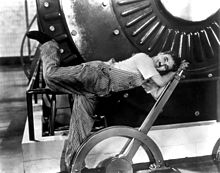Courtesy of Indeed, here is a supposedly ideal answer to the standard interview question for teachers, “What is your teaching philosophy?” In other words, this is what your teaching philosophy is supposed to be. And it is utterly wrong:
“My teaching philosophy is to make my lesson plans relatable. In many cases, when a student can’t identify with the material, it’s harder for them to gather meaning. As a literature teacher, my goal is to help students empathize with characters, places and concepts, especially when those things are different from their own life experiences. As a student, I found stories more memorable when my teachers helped me draw parallels. As a student teacher, I like to make comparisons between older texts, like Shakespeare and modern events. For example, comparing events in the plays to events in pop culture. This not only helps students understand the stories but also helps them draw their own conclusions.”
First, the need for students to “identify with the material.” They are supposed to see “their own life experiences” reflected in the material.
This is the opposite of the point of reading a book in the first place. One reads a novel to get away from one’s own everyday life, to experience the world from another’s perspective. Accordingly, the books that sell the best, that people most enjoy, are set in exotic locales and based on improbable situations: Harry Potter, James Bond, superhero comics and movies, the Da Vinci Code, Treasure Island, Peter Pan, Star Wars. The surest way to bore students, and turn them off reading altogether, is to select readings that most closely reflect their own life experience.
Moreover, this is deliberately preventing them from learning, subverting the entire point of going to school. One already knows about one’s own life situation.
For the same reason, it is perverse to suggest that minority voices have traditionally been underrepresented in our literature or in the bookstores. Being exotic has always been an advantage. Pauline Johnson used to perform in buckskin. Grey Owl faked his Indian identity.
As for comparing events in the classical texts to pop culture: always done these days. For years, every text I used had a chapter on the movie “Titanic”; and I could see the students roll their eyes and hear them audibly groan. Not “Titanic” again!
The problems with this approach are many.
First, the students already know pop culture. They are not learning anything; you’re just wasting their time.
Second, they probably know it better than the teacher. It is insulting to presume the teacher knows more than they do about such things. Why? What makes them the authority on Taylor Swift? Just because they’re older? Must the students merely knuckle under to established authority? Is this the lesson being taught?
Third, nothing is so dated and uncool as yesterday’s biggest pop phenomenon. It is impossible to stay current. Especially in textbooks, which take at least a year from composition to publication, and then remain in circulation for years. Pop culture references will always be dated, and wincingly uncool.
Fourth, everyone will fix on the same obvious pop culture references, going for the biggest bang, the biggest connection with the youngsters, and the thing, like Titanic, so big that even they, uncool old people as they are, are aware of it. Students will encounter the same cultural reference again and again, boring them beyond comprehension. When they could be out learning something.
A similar problem adheres when you try to connect your classic material with “current events.” Nothing is as dead, old, and dull as yesterday’s news. Text can’t possibly keep up, not being reissued daily. To compensate, “current events” in the classroom inevitably means a handful of generic topics: ecology, the environment, or “the environmental crisis”; the issues raised by new technology, considered generically; globalization; peace versus war, and such. There is an obvious problem of ideological bias; but without ideological bias, such topics are desperately repetitious and boring. Yes, pollution is bad. Yes, there are bad things on the Internet. Yes, the world is becoming smaller. Yes, peace is better than war. Snore.
Back in the old days, to avoid these problems, modern history was not taught; only classical history. Modern history, current events? Set that up as formal debates among the students. For the same reason, current novels and recent writing were not taught. Leave those for reading clubs in the common rooms.
Our ancestors had it right.























